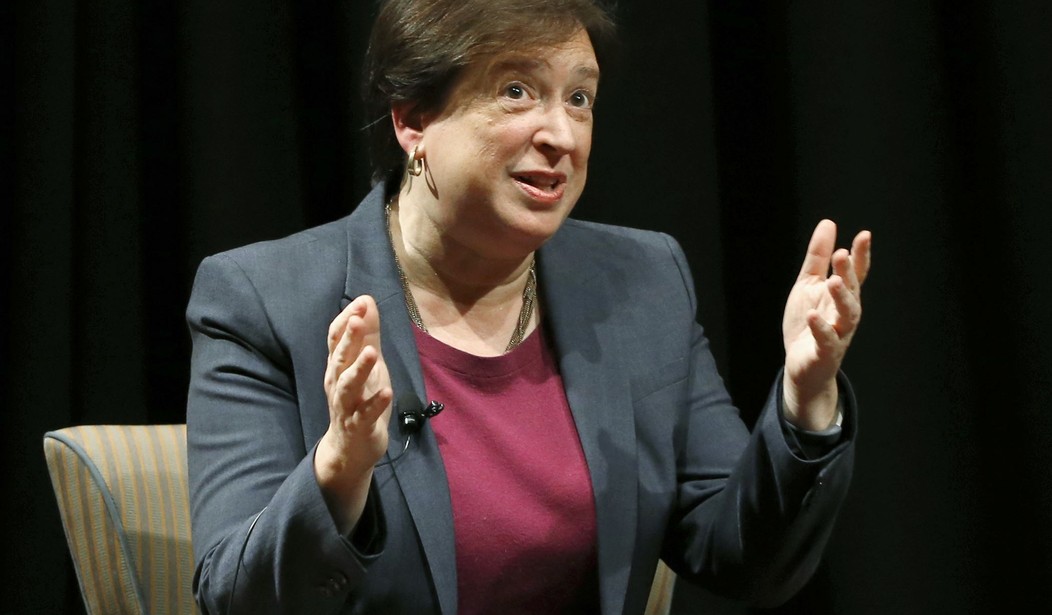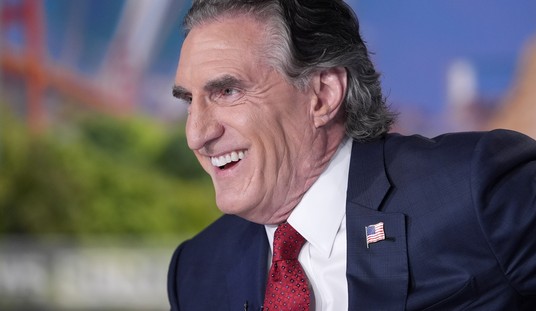Really? Our crisis in civics education runs much deeper and wider than anyone previously thought. Speaking to a Montana judicial conference on Thursday, Supreme Court Justice Elena Kagan warned that the court risked its “public confidence” in issuing opinions that diverged too much from popular “sentiment.”
That must be an unknown codicil to Article III — the Public Opinion Clause, perhaps?
Liberal Justice Elena Kagan said on Thursday that it would be a “dangerous thing for a democracy” if the conservative-majority U.S. Supreme Court loses the confidence of the American public.
Speaking in public for the first time since the court’s momentous ruling last month that overturned the landmark Roe v. Wade decision that legalized abortion nationwide, Kagan stressed the importance of the justices staying in their proper roles as judges and not dictating public policy.
“I’m not talking about any particular decision or even any particular series of decisions, but if over time the court loses all connection with the public and with public sentiment, that’s a dangerous thing for a democracy,” Kagan said at a judicial conference in Montana. …
“Overall, the way the court retains its legitimacy and fosters public confidence is by acting like a court, is by doing the kinds of things that do not seem to people political or partisan,” added Kagan, who has served on the court since 2010.
The minority in Dobbs made that their central argument in opposition to overturning Roe, too. In fact, their dissent authored by Stephen Breyer was remarkable for its absence of a defense of Roe and a legal explication of the supposed right to abortion it found. Instead, the dissent offered a series of utilitarian arguments rather than any actual legal reasoning based on the Constitution, including a “societal reliance” argument so broad as to render the court permanently incapable of ever revisiting an erroneous judgment.
Brett Kavanaugh demolished that argument in his third footnote, which speaks directly to the “public sentiment” argument Kagan raised on Thursday. That kind of “reliance” argument, Kavanaugh points out, would have kept Plessy v Ferguson in place rather than Brown v Board of Education, and might have meant that Obergefell would have failed as well:
3 I also agree with the Court’s conclusion today with respect to reliance. Broad notions of societal reliance have been invoked in support of Roe, but the Court has not analyzed reliance in that way in the past. For example, American businesses and workers relied on Lochner v. New York, 198 U. S. 45 (1905), and Adkins v. Children’s Hospital of D. C., 261 U. S. 525 (1923), to construct a laissez-faire economy that was free of substantial regulation. In West Coast Hotel Co. v. Parrish, 300 U. S. 379 (1937), the Court nonetheless overruled Adkins and in effect Lochner. An entire region of the country relied on Plessy v. Ferguson, 163 U. S. 537 (1896), to enforce a system of racial segregation. In Brown v. Board of Education, 347 U. S. 483 (1954), the Court overruled Plessy. Much of American society was built around the traditional view of marriage that was upheld in Baker v. Nelson, 409 U. S. 810 (1972), and that was reflected in laws ranging from tax laws to estate laws to family laws. In Obergefell v. Hodges, 576 U. S. 644 (2015), the Court nonetheless overruled Baker.
This demonstrates why the court’s credibility isn’t based on its vicinity to momentary public sentiment, but rather in the rule of law. Plessy is perhaps the best example of all; the court literally made up a “separate but equal” doctrine that directly contradicted the 14th Amendment to pander to public sentiment on segregation, then left it in place for sixty years — longer than Roe — and allowed much more “reliance” on it. Jim Crow laws were founded on Plessy, in practice if not explicitly. And when the Supreme Court tossed Plessy in Brown v Board of Education, it contradicted public sentiment and those reliance interests in the places that the decision mattered most — thankfully.
In Brown, the court returned to the rule of law. Kagan’s arguing for the same kind of jurisprudence that created Plessy — a court that panders to popular opinion rather than allowing the two branches designed for that purpose to operate properly. The legislature, and especially the House in the constitutional structure, reflects popular opinion and “public sentiment.” So does the executive branch, in a slightly less direct manner, as both are accountable to voters, directly or indirectly. Issues not discussed in the Constitution are the prerogative of the legislatures in the states or Congress as an exercise of self-governance.
The courts, however, are bound by the law and the Constitution. The framers deliberately shielded Article III from “public sentiment” and voter accountability for a reason, and that reason is that public sentiment should play no role at all in their deliberations. The Constitution created courts as a bulwark against mob rule and mob justice, and it redirects public passions back to the representative branches of government. The facts and the law are all that matter in federal courts, or that’s all that should matter, with jurisdiction limited by the same Constitution to prevent the opposite extreme of mob rule — star-chamber tyranny. And if public sentiment cuts against a decision, then voters can elect officials that will pass laws that reflect public sentiment, and can even amend the Constitution if that sentiment has enough consensus to succeed.
Too bad that Kagan and her two colleagues don’t recognize the court’s proper role in our constitutional structure. If Kagan wants to operate off of public sentiment, she should resign her position and run for office. If not, Kagan should learn the belated civics lesson from the majority in Dobbs that put an end to judicial legislating.








Join the conversation as a VIP Member